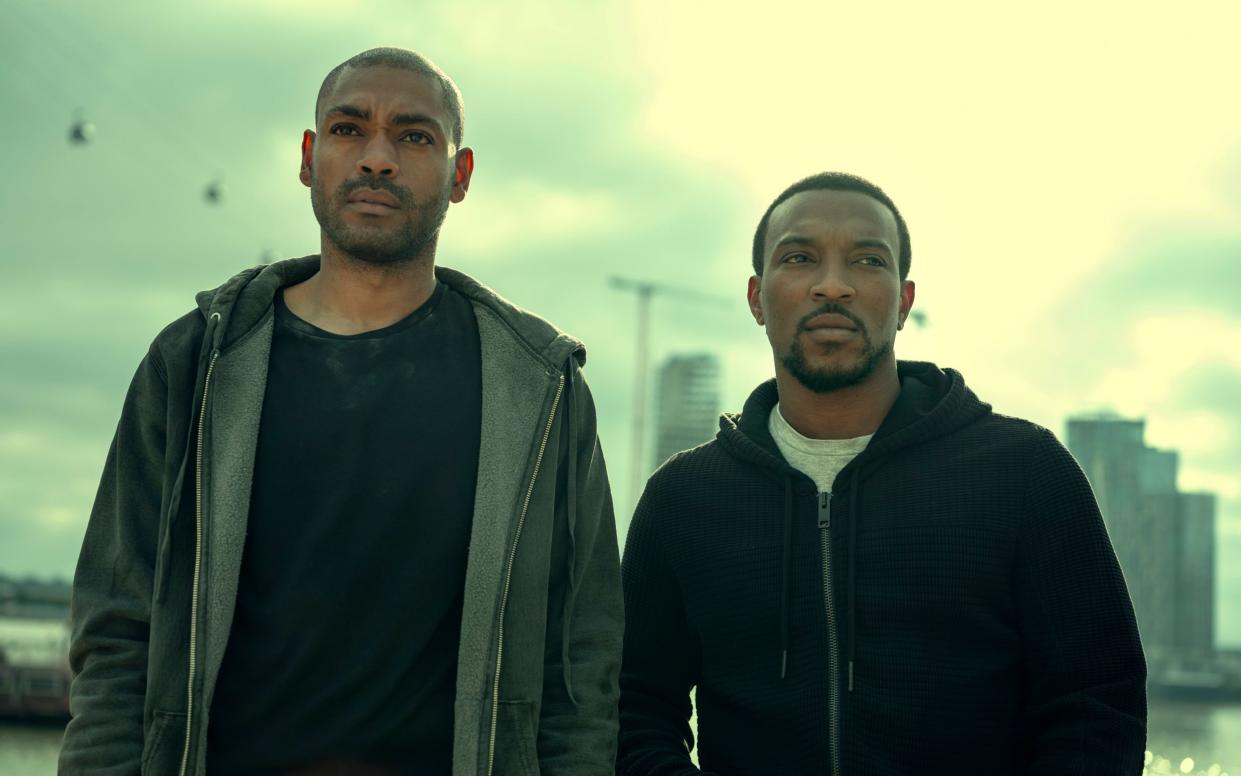Bafta was right – Top Boy is the finest British drama in years

- Oops!Something went wrong.Please try again later.
- Oops!Something went wrong.Please try again later.
- Oops!Something went wrong.Please try again later.
- Oops!Something went wrong.Please try again later.
- Oops!Something went wrong.Please try again later.
- Oops!Something went wrong.Please try again later.
What, not Happy Valley? Many watching the Bafta TV awards on Sunday night will have been expecting the conclusion of Sally Wainwright’s epic cop show to take the prize for best drama series. Viewers waited seven long years for a finale which fulfilled every expectation. But no, the winner was Top Boy – a deserved one too.
It so happens that Top Boy’s climax took a while to come too. The London crime drama began all the way back in 2011, only to be cancelled by Channel 4 after two seasons. It was the rapper Drake, whose interest in taking the story on as executive producer, brought the show to Netflix in 2019 after a six-year hiatus. There were three more seasons in all, one of them delayed by Covid-19.
Top Boy paid its conclusive visit to the Summerhouse estate in Hackney last autumn, with six punchy episodes that maintained the high rate of unritualised, unstylised, unglamorised violence that has defined this portrait of the London drug trade from the start. Its murders, and there have been too many to count, have never been fun to watch. In the fifth season, one DNA-rich crime scene turned a bright white kitchen deep red. Perhaps the grimmest instance of grand Guignol revealed, in the secret compartment at the back of a lorry, a box containing many flies and the severed head of a Moroccan.
Far more than a blood bath, Top Boy was a portrait of a community. The idea came to Ronan Bennett, who wrote all but six of the 32 episodes, when he had already been living in Hackney for a couple of decades. When shopping he spotted a boy of roughly 12 years of age selling drugs outside the supermarket. That boy, who was left alone by the police, was his route in to a vast and thoroughly normalised street trade from which, for those sucked into it, there seemed no escape.
“The overwhelming impression I get is one of weariness, sadness, as if they sense the futility of what they’re involved in,” Bennett wrote in 2011. “They are in a life they don’t like but don’t know how to get out of.”
By the final season, the two chief druglords of Summerhouse had seemed to reach a truce. Dushane (Ashley Walters) allowed himself to be barged aside by the leaner, hungrier Sully (Kane Robinson). Then Dushane discovered his millions had vanished just as Sully’s stash of drugs was stolen, setting both on a path towards the endgame.
The unique value of Top Boy is that, while providing edge-of-seat thrills, it has shone a light directly into the lives of a section of society largely overlooked by dramatists. In other shows, drug dealers would loiter in the margins. Here they seized the centre of the screen.
Many of the dilemmas they worked through perhaps felt familiar from Italian and American crime dramas – the unbreakable law of omertà, the moral choices forced on gangsters’ molls, the entrapment of children as foot soldiers. Nor did Bennett forget his Belfast roots when introducing an insouciant Irish gangster played, in a violently terminated cameo, by Barry Keoghan.
But in the beginning, as well as in the end, Top Boy’s was steeped in the lore of London; in particular those areas increasingly affected by gentrification and the Windrush scandal. Yes, this was the contemporary city, but its finale hinted at a debt to the oldest and most famous London underworld drama of them all. As Dushane fled from police through Summerhill in riot, all means of escape blocked off, he ressembled a latter-day Bill Sikes. Sully also died as summarily as Fagin.

We’ll see those two top boys no more. There is, however, news of a possible spin-off series for Sully’s ADC Jaq. Jasmine Jobson, who played her, won a Bafta for best supporting actress at the third time of asking, seeing off the likes of Harriet Walter in Succession, Siobhan Finneran in Happy Valley and Lesley Manville and Elizabeth Debicki in The Crown.
All those performances had much to savour in them. What must have clinched it was Jaq’s Damascene conversion after her sister’s fatal drug overdose. The journey required Jobson to switch from pitiless to grief-stricken and vulnerable. Winning was a personal triumph for Jobson, but also an affirmation for the vital role the arts can have in redeeming difficult young lives. Jobson more or less put herself into foster care as a child, asking for social services to remove her from her mother. She didn’t have to act when, asked to be angry in her audition, she picked up a chair and threw it across the room.
The only worry about a new series for Jaq is she’s renounced dealing. Bennett will have to find something else for her to do.
Top Boy is available on Netflix

